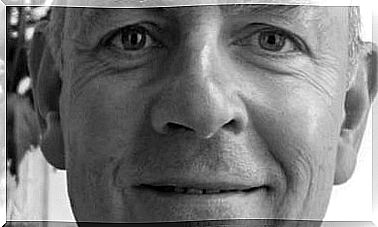Your Happiness Does Not Depend On Anyone
Desire brings us closer to others, but it also leads us to feel that we have a void. In a breakup, that certainty hurts intensely … How to overcome it?

As Gustavo Dessal puts it, “love is a happy invention that allows us to tolerate our own existence.”
Psychoanalysts know that, as human beings, we are destined to live with the emptiness of feeling that we are not complete ; what we call “the lack”. Tolerating this lack is precisely one of the most costly efforts we face as people; And after a breakup, the feeling can become unbearable.
At some point we have all had to live with emptiness, with that feeling that we are not complete, that we lack something or someone to be happy.
In other words, and quoting Jacques Lacan, that affect is always linked to our relationship with the other, to what constitutes us as desiring subjects. That is, we desire precisely because there is something that we lack, something that we will only find in the other’s field. For this reason, it is in the field of the other that the subject is founded.
We can maintain that we are, in what affects us and as subjects, always dependent on that desire that links us with the other and that forces us to be no more than that always unknown and missing being.
How heartbreak hurts
Catherine Millot writes in her book O solitude (Gallimard Publishing House) that many times we are confronted with the fact that we are nothing to the other and that, when one loves, this feeling can be confused with death.
For his part, the French writer, anthropologist and thinker Georges Bataille affirms that love elevates the desire of one being for another to a degree of tension in which the eventual deprivation of the possession of the other or the loss of their love is not experienced. less harshly than a death threat.
The subject who so clearly appears in psychoanalysis, as well as in literature, configured by another, which inevitably implies a dependence on him, understands the pain for the lost loved object. But this subject appears totally blurred in psychiatry today, reducing this to an individual user who should not suffer. Suddenly, the loss of a loved one should not be sad, sadness being treated as pathological and obligatorily medicated.
When Freud speaks to us in his work Grief and melancholy about the grieving process, he explains that it consists of “the reaction to the loss of a loved one or an equivalent abstraction” and he warns:
“It never occurs to us to consider grief as a pathological process and to subject the subject to medical treatment, although it is a condition that imposes considerable deviations from their normal behavior. After a while it will disappear by itself and we will deem it inappropriate and even harmful to disturb it ”.
Learn to live with desire and lack
Thus, the pain at the loss of the loved one is inevitable, but not pathological. It’s about going through the process; and there are several concepts that can help us carry out this path:
Give us the necessary time
It is impossible to avoid a certain period of time (it is strictly necessary) so that we are able to detach ourselves from that lost person or loved object, despite the fact that this point collides with the urgency to which we are forced in today’s society marked by immediacy, completely intolerant of waiting.
Revalue our self
Different maneuvers at the conscious and unconscious level can help us to renounce that lost object, as Freud said, “devaluing it, denigrating it and, ultimately, murdering it.”
At the end of this process, what in psychoanalysis we call the self, that is, our identity in a simple way, should come to ” enjoy the satisfaction of recognizing itself as the best of the two, as superior to the object.”
However, a natural and innate opposition of the subject arises against this process, which is that the subject does not easily abandon or renounce his acquired position, even though in many cases he has already been able to find a replacement for them. The subject tends to represent the world as deserted and impoverished, unable at the beginning to replace the disappeared and replace it with a new one that occupies that scenario.
Stop identifying with the other
In general, we recognize in the other something of ourselves that attracts us unconsciously and we choose it. Depending, logically, on what we speculatively look for ourselves in the other, we will make different types of choice.
Ultimately, this will predispose to one or another duel, more or less intense, depending on whether the self is more or less dominated by the other.
Understand why we feel this way
This process can be somewhat complex, since it is about abandoning the representation of that loved person, who as Freud explains “is represented by innumerable impressions (unconscious traces)”.
That is, there is no single representation of the loved object, since this representation is in turn capable of activating multiple memories that each time come from a different source. And it is that the object has a large number of different connections with smells, sounds, places, symbols …
If to this is added, as happens in many cases, that the loved one has intervened in a traumatic event, then the process can become even more complicated because this traumatic event could probably be reactivating other repressed memories in her that were also traumatic.
Solve the dilemma
The great enigma that only solved will allow us to move forward after suffering this type of loss is to understand why that person is irreplaceable by another, what gives them their value and ultimately what makes this experience unique, irreducible and unrepeatable.









